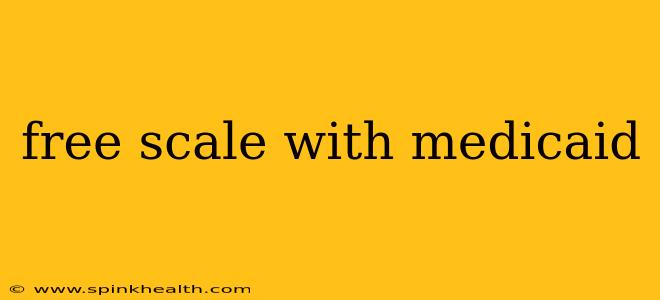Navigating the Maze: Understanding Free or Low-Cost Healthcare with Medicaid
The search for affordable healthcare is a common concern for many Americans. The good news is that options exist, and understanding them can significantly alleviate stress and improve access to necessary medical care. This journey often begins with exploring Medicaid, a publicly funded healthcare program for low-income individuals and families. Let's unravel the complexities of accessing free or low-cost healthcare through Medicaid, addressing common questions along the way.
What is Medicaid, and who qualifies?
Medicaid isn't a single, uniform program. Instead, it's a partnership between the federal government and individual states, meaning eligibility requirements and benefits can vary. Generally, Medicaid covers individuals and families with incomes below a certain threshold. This threshold changes depending on your state, family size, and other factors like disability or pregnancy. Think of it like a financial safety net specifically designed to provide access to essential medical services. Eligibility isn't just about income; it also often considers factors like your citizenship status, age, and disability. Many states also offer Medicaid expansion under the Affordable Care Act (ACA), further broadening access to healthcare. The best way to determine your eligibility is to check your state's Medicaid website or contact your state's Medicaid agency directly.
How can I find free or low-cost healthcare options beyond Medicaid?
While Medicaid is a significant resource, other avenues can provide free or low-cost healthcare. Many community health centers offer sliding-scale fees based on income, ensuring access to care regardless of ability to pay. These centers often provide a wide range of services, including primary care, dental care, and mental health services. Hospitals and clinics often have financial assistance programs to help reduce the cost of care for patients who qualify based on their financial circumstances. Additionally, some charitable organizations and non-profits offer assistance with healthcare expenses, particularly for specific conditions or populations. It's worth exploring these options to discover what resources are available in your community.
What services are typically covered under Medicaid?
Medicaid coverage varies by state, but generally includes essential healthcare services like doctor visits, hospital stays, prescription drugs, preventative care, and mental health services. Specific services and the extent of coverage can differ based on your state's Medicaid plan. Many states also offer additional benefits such as vision care, dental care, and transportation assistance to medical appointments. It's crucial to review your state's specific Medicaid benefit package to understand what's covered under your plan.
How do I apply for Medicaid?
The application process varies by state, but generally involves completing an online application or submitting a paper application through your state's Medicaid agency. You'll need to provide documentation to verify your identity, income, and other eligibility requirements. These documents might include proof of income, Social Security numbers, and birth certificates. The application process usually involves an assessment of your household income and assets to determine eligibility. Once you've submitted your application, your state's Medicaid agency will review your information and notify you of their decision.
What if I'm denied Medicaid? What are my options then?
If your Medicaid application is denied, don’t despair. You typically have the right to appeal the decision. Carefully review the denial letter for reasons why your application was rejected. This information will help you in preparing your appeal. You might need to provide additional documentation or clarify certain aspects of your application. Many states have a clear appeals process, which could involve a hearing or further review of your application. Meanwhile, consider the other options mentioned earlier, such as community health centers and financial assistance programs offered by hospitals.
Finding free or low-cost healthcare isn’t always easy, but it's certainly achievable with diligent research and persistence. Remember, each state's Medicaid program operates differently, so tailoring your search to your specific location is crucial. Don't hesitate to contact your state’s Medicaid agency directly or seek assistance from community organizations for guidance and support. Your health is a priority, and navigating these resources can pave the way to better access to necessary medical care.

